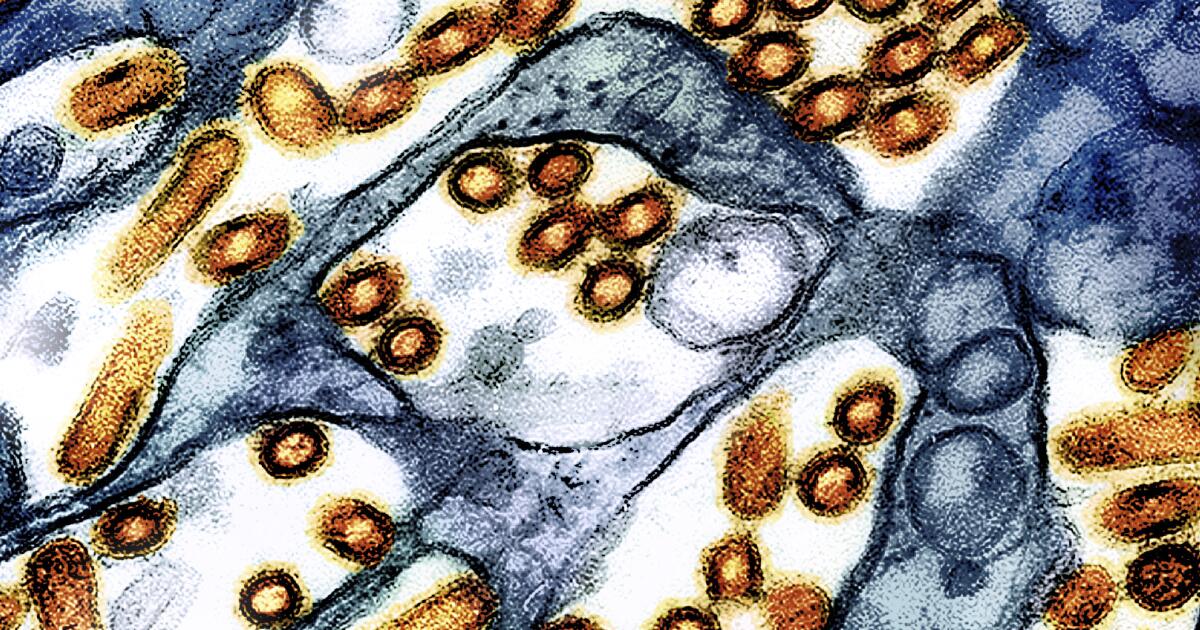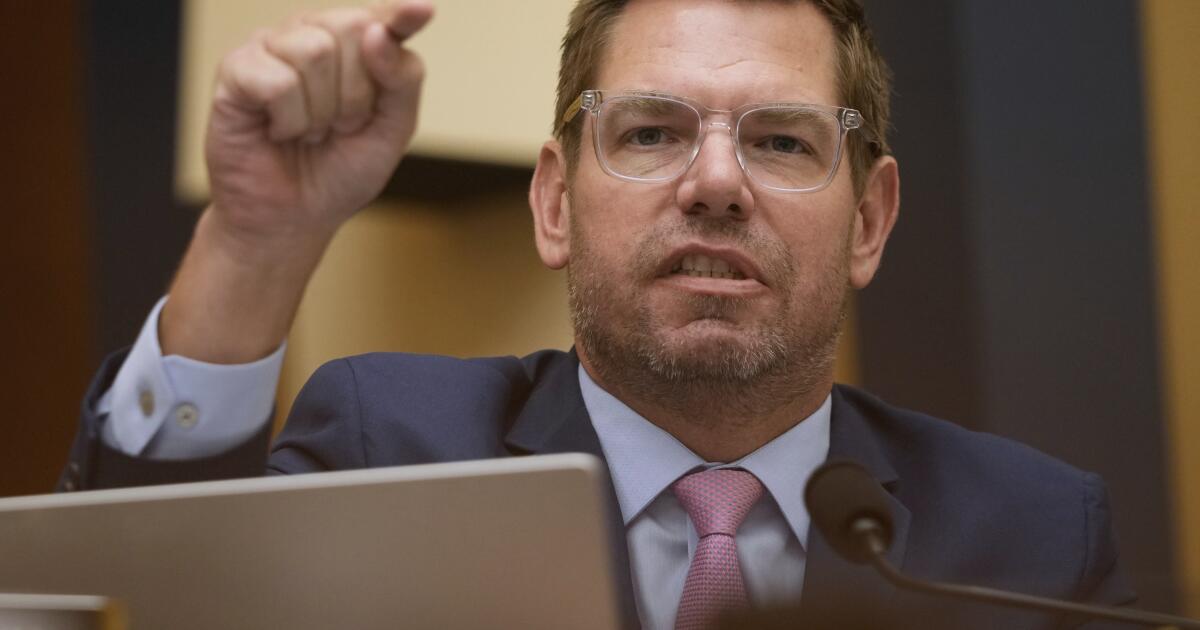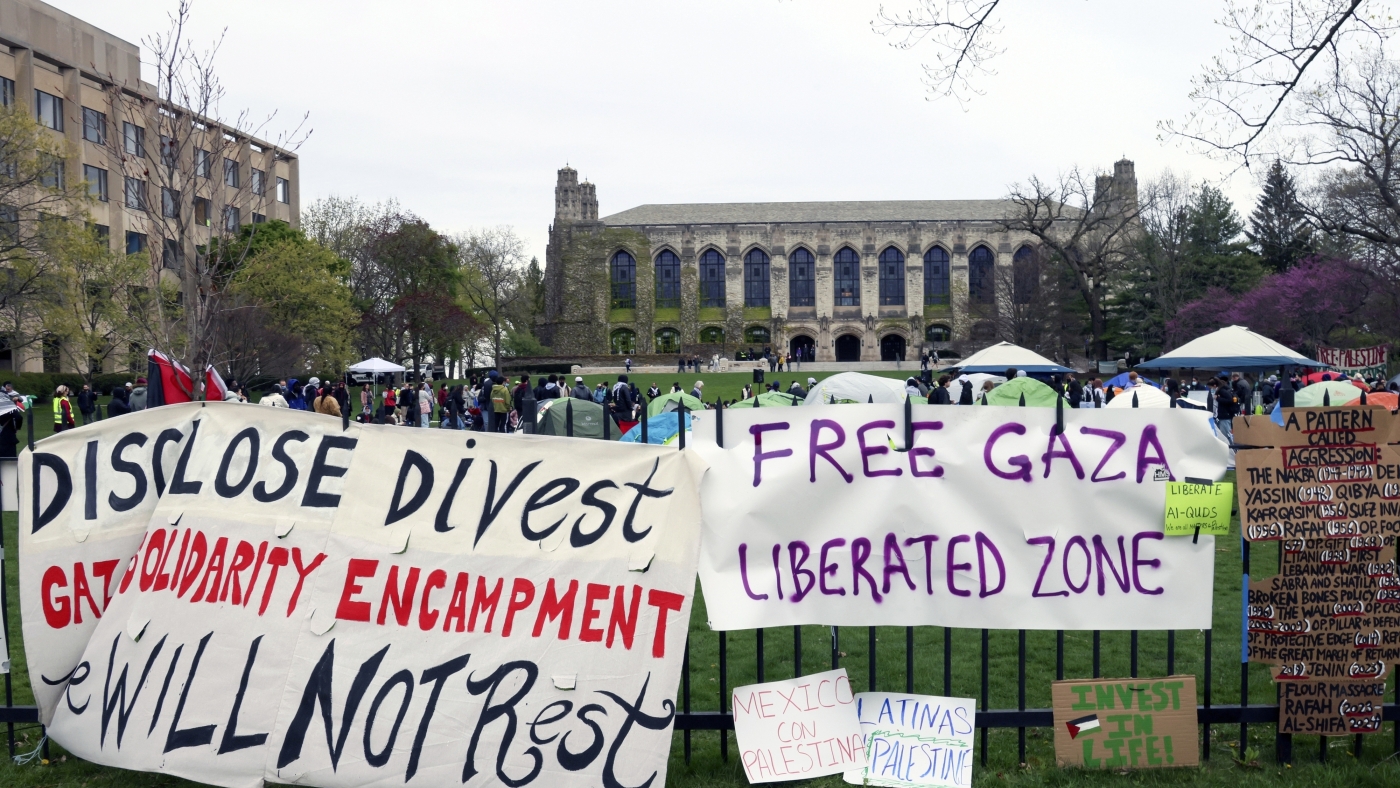South Dakota
Referred Law 21: A landowner bill of rights or an undermining of local control • South Dakota Searchlight

The measure on South Dakota’s Nov. 5 ballot that addresses carbon dioxide pipelines is either a bill of rights for landowners or a seizure of authority from local governments, depending on the person describing it.
During the last legislative session in Pierre, state lawmakers passed and Republican Gov. Kristi Noem signed Senate Bill 201. Opponents gathered more than 31,000 petition signatures to refer the law to voters. On the ballot, it’s Referred Law 21. A yes vote supports the law passed by legislators and Noem, while a no vote opposes the law.
The law would implement a list of protections and incentives for landowners and counties impacted by the construction of carbon dioxide pipelines. That’s the “bill of rights” part, according to the law’s supporters.
But it would also require local governments to demonstrate to state regulators that their restrictions on pipeline locations are reasonable, rather than the pipeline company having to prove those regulations are unreasonable. That’s the seizure of local authority, according to the law’s opponents.
The path to the ballot
The genesis of the debate over carbon pipelines is a proposal from Iowa-based Summit Carbon Solutions. It has partnered with ethanol producers, including Sioux Falls-based Poet, to capture some of the CO2 emitted by 57 ethanol plants in several midwestern states — including eastern South Dakota — and send it via pipeline for underground storage in North Dakota. The project would capitalize on federal tax credits that incentivize the prevention of climate-warming greenhouse gas emissions.
Some landowners along the pipeline route oppose the project because they don’t want the pipeline under their land. They oppose Summit’s attempted use of eminent domain to gain court-ordered access to their land and are concerned about potentially deadly leaks of carbon dioxide plumes. Similar debates are occurring in other states on the proposed route. Iowa has granted the project a permit, but it’s contingent on approval in the Dakotas, where Summit has not yet obtained permits.
Legislative sponsors of what became Referred Law 21 described it as a compromise between pipeline opponents and supporters, guaranteeing protections and incentives for landowners while maintaining a regulatory path for pipelines. The compromise effort arose after some legislators failed in their efforts to ban eminent domain for carbon pipelines. Referred Law 21 does not address eminent domain.
Another factor in the debate over the legislation was the role of counties. Some county commissions, prodded by pipeline opponents, have passed local ordinances with strict restrictions on the locations of pipelines.
Under existing law, those local ordinances apply unless the state Public Utilities Commission decides to declare them unreasonably restrictive. If Referred Law 21 takes effect, the burden would flip. Counties would have to prove to the state commission that their ordinances are reasonable.
The proposed law says that once the state issues a permit for a transmission project such as a pipeline, it automatically overrides any local rules. Local regulations would no longer be applicable unless state regulators require compliance with local laws as part of the permit.
Some proponents of Referred Law 21 say current state law makes it too easy for a local body opposed to a multi-state pipeline project to hold up construction. They say if local officials are confident their regulations are reasonable, they can rest easy knowing state regulators will uphold them.
“There is no wording in Senate Bill 201, now Referred Law 21, that diminishes the counties’ rights in any way,” said Walt Bones, a proponent of the law, during a September debate in Mitchell. Bones is a former secretary of the state Department of Agriculture.
Opponents are not buying it.
“Senate Bill 201, now Referred Law 21, takes away the voice of those local governments,” argued Jim Eschenbaum, an opponent of the law. Eschenbaum is a Hand County commissioner.
Landowner bill of rights
The law includes landowner protections, coined the “Landowner Bill of Rights” by backers in the Legislature.
They include requiring carbon pipeline companies, rather than landowners or local governments, to be liable for any damages caused by pipelines. The pipelines would also have to be buried at least 4 feet deep, and companies would have to share their pipeline rupture modeling data.
Counties could also collect a surcharge of up to $1 per linear foot of CO2 pipeline, with at least half of the money going toward property tax relief for affected landowners. The remaining funds could be used at the county’s discretion.
Plus, local governments could require transmission projects such as pipelines to enter road usage agreements to help pay for the maintenance and repair of roads damaged during construction activity.
“This is all about landowner rights, and getting some funding source back to counties,” Bones said. “That’s all this is. It’s not a referendum on a pipeline. It’s nothing more than this list of landowner rights and protections, and a funding source.”
Opponents say many of the protections and incentives in the bill are already part of county and landowner negotiations with Summit.
“They call it the ‘Landowner Bill of Rights.’ It is Summit’s bill of rights,” said Eschenbaum during a recent rally in rural Canton. “They said they’d do all that stuff before drafting the bill even started.”
Eschenbaum added during his September debate with Bones that “the Legislature has no business negotiating terms on peoples’ private property.”
Proponents counter that landowners could still negotiate the location of the pipeline, how much they will be paid, and additional easement terms.
GET THE MORNING HEADLINES.
YOU MAKE OUR WORK POSSIBLE.

South Dakota
SD Lottery Powerball, Lucky For Life winning numbers for Nov. 29, 2025
The South Dakota Lottery offers multiple draw games for those aiming to win big. Here’s a look at Nov. 29, 2025, results for each game:
Winning Powerball numbers from Nov. 29 drawing
19-22-30-32-59, Powerball: 01, Power Play: 2
Check Powerball payouts and previous drawings here.
Winning Lucky For Life numbers from Nov. 29 drawing
04-08-09-34-39, Lucky Ball: 13
Check Lucky For Life payouts and previous drawings here.
Winning Lotto America numbers from Nov. 29 drawing
01-15-18-21-46, Star Ball: 06, ASB: 02
Check Lotto America payouts and previous drawings here.
Winning Dakota Cash numbers from Nov. 29 drawing
11-13-20-21-28
Check Dakota Cash payouts and previous drawings here.
Feeling lucky? Explore the latest lottery news & results
Are you a winner? Here’s how to claim your prize
- Prizes of $100 or less: Can be claimed at any South Dakota Lottery retailer.
- Prizes of $101 or more: Must be claimed from the Lottery. By mail, send a claim form and a signed winning ticket to the Lottery at 711 E. Wells Avenue, Pierre, SD 57501.
- Any jackpot-winning ticket for Dakota Cash or Lotto America, top prize-winning ticket for Lucky for Life, or for the second prizes for Powerball and Mega Millions must be presented in person at a Lottery office. A jackpot-winning Powerball or Mega Millions ticket must be presented in person at the Lottery office in Pierre.
When are the South Dakota Lottery drawings held?
- Powerball: 9:59 p.m. CT on Monday, Wednesday, and Saturday.
- Mega Millions: 10 p.m. CT on Tuesday and Friday.
- Lucky for Life: 9:38 p.m. CT daily.
- Lotto America: 9:15 p.m. CT on Monday, Wednesday and Saturday.
- Dakota Cash: 9 p.m. CT on Wednesday and Saturday.
This results page was generated automatically using information from TinBu and a template written and reviewed by a South Dakota editor. You can send feedback using this form.
South Dakota
Is South Dakota State vs New Hampshire football on TV today? Live stream, FCS playoffs preview

If you purchase a product through a link on our site, we may receive compensation.
The NCAA FCS College Football Playoffs get underway today as the South Dakota State Jackrabbits (8-4) take on the New Hampshire Wildcats (8-4) in a first round showdown. This game is streaming only, and won’t be on regular broadcast TV. Kickoff takes place on Saturday, November 29 at 10 a.m. PT/1 p.m. ET (11 a.m. MDT) with a live TV broadcast only with ESPN Plus.
• You can watch New Hampshire vs. South Dakota State football streaming live on ESPN+ (now called ESPN Select) today.
Is the South Dakota State vs New Hampshire NCAA FCS college football playoff game on TV today, or streaming only?
When: Saturday, November 29 at 10 a.m. PT/1 p.m. ET (11 a.m. MDT)
Where: Dana J. Dykhouse Stadium in Brookings, SD
TV channel: This game is not available on traditional broadcast TV, and is only streaming on ESPN’s live sports streaming platforms available on the ESPN App with one of the “ESPN Select” or “ESPN Unlimited” subscription plans. (This is the streaming service formerly known as ESPN Plus. Here’s a look at the breakdown of ESPN streaming plans, what they cost and include.)
Where to watch streaming live on TV, or online: You can watch a live stream of this game for less than $12 on ESPN Select (It’s just $11.99/month or $119.99/full year subscription, and you can cancel anytime. Just choose the “ESPN Select” plan in the drop down to sign up for the cheapest version of the service.).
- The best deal: If you sign up for ESPN Unlimited ($29.99/month), you will get all of the ESPN networks and services, including ESPN, ESPN2, ESPNU, ESPNEWS, ESPN Deportes, SEC Network, ACC Network, ESPN+, ESPN on ABC, SEC Network+, ACC Network Now and ESPN3.
South Dakota
‘The very best in humanity’: How a stranger gave a South Dakota boy new life



When her infant son began showing signs of jaundice following a full-term, healthy pregnancy, Sarah Beckstrom soon began a journey from fear, anger and sadness to eternal appreciation for a perfect stranger.
But the Mitchell mother and LifeSource, the region’s primary organ procurement organization that helps connect donors and recipients like baby Charlie — now a healthy and active teenager — say continued education around organ donation is necessary to ensure more families can feel what the Beckstroms have for the last decade.
“He was just not thriving. He couldn’t absorb, you know, milk. He was just kind of a not content child,” Beckstrom recently said in an interview with The Dakota Scout, recalling the early signs of the rare genetic liver condition — alpha-1 antitrypsin deficiency — that threatened her son’s life before his first birthday.
State apologizes, but can’t explain missing evidence in prison overdose case




Charlie was placed on the organ waiting list at 7 months old. Three months later, the call came.
A 13-year-old donor had died, and his liver was a match.
Today Charlie is also 13 — a healthy, energetic one. But for Beckstrom, joy exists alongside grief — for the family who lost their child and ultimately saved hers.
“It was kind of like I wrote the donor’s family after, which was probably one of the most emotionally challenging, difficult things I’ve ever done,” she said. “That circle wasn’t closed for me. And I’m like, okay, I need to do more. Because they gave him a second chance at life.”




That’s why Beckstrom became a LifeSource ambassador, sharing Charlie’s story in hopes of encouraging more people to check the “yes” box on their driver’s license. The organization oversees the donation system across Minnesota, North Dakota and South Dakota — responding around the clock when someone dies under circumstances that allow organ donation, supporting families, coordinating recovery and transporting organs to recipients.
“When I think about people who say yes to donation, who put donor on their driver’s license, I think that’s the very best in humanity because they’re helping another person,” said Susan Mau Larson, chief administrative officer for LifeSource.

Only about 1 percent of deaths occur in a hospital while the patient is on a ventilator, the criteria that’s typically required for organ donation. But in recent years, medical innovations have helped expand the donor pool nationwide. Perfusion devices can preserve organs longer. The federal HOPE Act allows organ donation between HIV-positive donors and recipients. Broader medical criteria are also increasing the number of viable transplants. Nationally, transplants have risen by about 50 percent over the past decade.
Surgeons say the emotional weight of the process is shared in operating rooms across the country.
Dr. Hassan Turaihi, who performs one or two organ transplants a month at Sanford Health, says the work is both devastating and beautiful.



“Thousands of people are waiting for a second chance at life… a functional heart, a healthy liver, or a working lung,” he said. “Their lives are on pause desperately hoping for a miraculous call so organ donation is a miracle. It’s the ultimate sacrifice.”
Up to eight people can benefit from a single donor — two kidneys, a heart, lungs, eyes, corneas, pancreas, small bowel and a liver, which can be split to help two patients.
“When I go in for those organ donations, it’s sad to hear the story of family and the donor who made the ultimate sacrifice, but at the same time you know you’re giving someone else the ability to have a new life and new chapter,” Turaihi said.


LifeSource leaders say South Dakota has long had one of the highest donor-registration rates in the nation. But in recent years the rate has slipped from about 60 percent to 57 percent. Mau Larson attributes the decline to national misinformation — claims that organs are lost in transit, that families feel pressured or that the process lacks oversight.



She pushed back on those narratives, emphasizing the accountability and transparency built into every step of the system.
The organization is also working to improve culturally responsive outreach, particularly among American Indian communities. Tribal engagement across South Dakota, including partnerships with Native chaplains and respect for beliefs surrounding keeping the body intact, are initiatives Mau Larson credits with donor rates staying strong in the state.
Data from the federal Organ Procurement and Transplantation Network show the number of American Indians receiving transplants in South Dakota was five in 2023, eight in 2024 and seven in 2025. The state has two kidney-transplant programs, but patients needing other organs — including hearts or livers — typically travel to Minnesota or Colorado. Meanwhile, the number of American Indian deceased donors in South Dakota fluctuated from six in 2023 to two in 2024 and five in 2025.



LifeSource operations are nationwide. In a three-state region that covers South Dakota, North Dakota and Minnesota, that means retrieval teams traveling frequently by air. Transporting organs involves specialized handling protocols, and recent federal changes have streamlined airline procedures and TSA requirements.
Despite ongoing budget negotiations in Washington, Mau Larson said LifeSource has avoided disruptions.
LifeSource leaders say they are grateful for South Dakota’s long record of donor registrations, and they continue answering questions for anyone unsure about what saying “yes” really means.
“We’re talking about helping another person,” Mau Larson said. “That’s the very best in humanity.”



-

 Science1 week ago
Science1 week agoWashington state resident dies of new H5N5 form of bird flu
-

 Business5 days ago
Business5 days agoStruggling Six Flags names new CEO. What does that mean for Knott’s and Magic Mountain?
-

 Politics2 days ago
Politics2 days agoRep. Swalwell’s suit alleges abuse of power, adds to scrutiny of Trump official’s mortgage probes
-

 Ohio4 days ago
Ohio4 days agoSnow set to surge across Northeast Ohio, threatening Thanksgiving travel
-

 Southeast1 week ago
Southeast1 week agoAlabama teacher arrested, fired after alleged beating of son captured on camera
-

 News1 week ago
News1 week agoAnalysis: Why Democrats are warning about Trump giving illegal orders | CNN Politics
-

 Business1 week ago
Business1 week agoFormer Google chief accused of spying on employees through account ‘backdoor’
-

 Technology3 days ago
Technology3 days agoNew scam sends fake Microsoft 365 login pages























